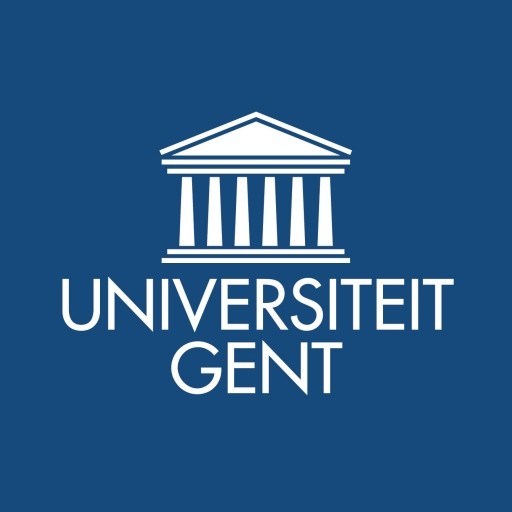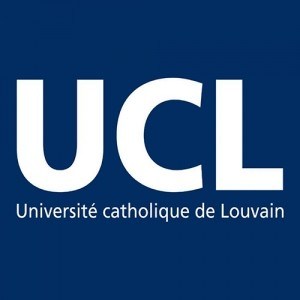Photos of university / #thefoundry_ugent
The Master of Science in Physical Land Resources at Ghent University offers a comprehensive, multidisciplinary education designed to equip students with the scientific knowledge and practical skills necessary for sustainable land management and resource utilization. This programme focuses on understanding the complex interactions between the physical environment and the land resources, including soil, water, and the atmosphere, with an emphasis on their sustainable use, conservation, and management in agricultural, urban, and natural landscapes.
Throughout the programme, students will engage in advanced coursework covering geosciences, soil science, hydrology, environmental physics, geographic information systems (GIS), remote sensing, and land use planning. The curriculum is structured to provide both theoretical foundations and practical applications, including fieldwork, laboratory analysis, and spatial data analysis. Students will develop expertise in assessing land quality, monitoring environmental changes, and designing sustainable land use strategies, tailored to meet the challenges posed by climate change, urbanization, and food security.
Research plays a central role in the programme, with students participating in cutting-edge projects that address real-world problems related to land degradation, soil contamination, water management, and ecosystem preservation. The programme also emphasizes the importance of a multidisciplinary approach, encouraging collaboration across fields such as biology, engineering, and economics to develop integrated solutions.
Graduates of this programme will be well-prepared for careers in environmental consultancy, land and water management authorities, research institutions, and international organizations involved in land use planning, environmental policy, and sustainable development initiatives. Furthermore, this programme provides a solid foundation for those interested in pursuing doctoral research in related fields, contributing to the advancement of knowledge and innovation in physical land resources management.
The international orientation of the programme ensures that students gain a global perspective on land resource challenges and solutions, supplemented by opportunities for internships, joint research projects, and exchanges with partner institutions worldwide. With access to Ghent University’s state-of-the-art facilities and a vibrant academic community, students are encouraged to develop their skills and knowledge to become leaders in promoting sustainable land resource management in a changing world.
GENERAL COURSES (45 credits)
- Pedology
- Applied Statistics
- Meteorology and Climatology
- Soil Chemistry
- Soil Physics
- Soil Mineralogy
- Land Information Systems
- Soil Prospection and Classification
- Scientific Communication on Physical Land Resources
MAIN SUBJECT COURSES (15 credits)
1. Option Soil Science
- Geomorphology
- Plant-Water Relations in the SPAC
- Soil Genesis
2. Option Land Resources Engineering
- Groundwater Hydrology
- Water and Land Interaction and Transformation
- Applied Geophysics
ELECTIVE COURSES (min. 30 credits)
- Soil Fertility
- Soil Degradation
- Land Evaluation
- Soil-Water Management
- Remote Sensing
- Properties and Management of Soils in the Tropics
- Quality of Groundwater Resources
- Irrigation and Drainage
- Soil Erosion Processes and Control
- Internship
- Applied Geomorphology
- Geomechanics
- Geological and Geotechnical Aspects in Coastal Lowlands
- Groundwater modelling
- Rock Mechanics and Underground Constructions
- GIS for Water Resources Engineering
- Remote Sensing in Water Resources Engineering
- Natural Hazards
- Natural Risk Management
- Geology and Engineering Geology
- Internship
Requirements
- Applicants must have at least a Bachelor's degree of min. 3 year with good overall scores (at least a second class upper or equivalent).
- Applicants must be able to demonstrate through their transcripts basic science training in (i) mathematics or statistics and (ii) chemistry or biochemistry, and an overall academic education background in a relevant discipline like (either) agriculture, biology, forestry, environment, land and water management, physical geography, geology or civil engineering.
- Reference letters
- Language requirements:
The applicant must be proficient in the language of the course or training programme, i.e. English. The English language proficiency can be met by providing a certificate (validity of 5 years) of one of the following tests: (TOEFL/IELTS predictive tests and TOEIC will not be accepted)
- TOEFL IBT 80
- TOEFL PBT 550
- ACADEMIC IELTS 6,5 overall score with a min. of 6 for writing
- CEFR B2 Issued by a European university language centre
- ESOL CAMBRIDGE English CAE (Advanced) - Enrollment fee of Ghent University for academic year 2016-2017 is 890 € for EER-students and students from OESO-DAC-list (developing countries), all other students pay an enrollment fee of 5330 €
Scholarships
- VLIR-UOS scholarships
- Ghent University Master grants
The Master of Science in Physical Land Resources at Ghent University is a comprehensive and multidisciplinary program designed to equip students with the necessary knowledge, skills, and competencies to address complex challenges related to land resources and sustainable land management. This program emphasizes an integrated approach combining aspects of geology, geography, environmental sciences, and land management to prepare graduates for careers in research, consultancy, and policy-making regarding land and resource management. Throughout the program, students gain a deep understanding of the physical processes shaping landforms, soil formation, and the impacts of human activities on the environment. The curriculum covers a wide range of topics, including geomorphology, soil science, land use planning, environmental management, and geospatial technologies. Practical training is a key component, involving fieldwork, laboratory analyses, and project work that enable students to apply theoretical knowledge to real-world problems. The program also fosters critical thinking, problem-solving, and communication skills, which are essential for effective decision-making and sustainable development. Graduates of this master's degree are well-prepared for roles in governmental agencies, environmental consultancies, research institutions, and international organizations focused on land resource management and environmental protection. The program often collaborates with industry partners, providing experiential learning opportunities and fostering professional networks. Admission requirements typically include a relevant undergraduate degree, such as in Earth sciences, environmental sciences, geography, or related fields. Language of instruction is primarily English, catering to an international student body. The program duration is generally two years, culminating in a master's thesis that involves original research. Overall, the Master of Science in Physical Land Resources offers a rigorous academic pathway for students passionate about understanding and sustainably managing terrestrial environments.

